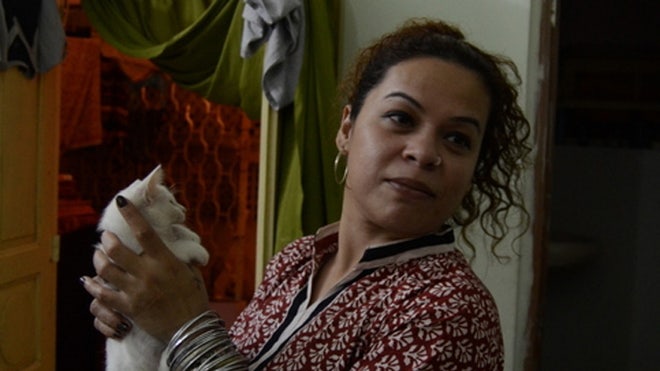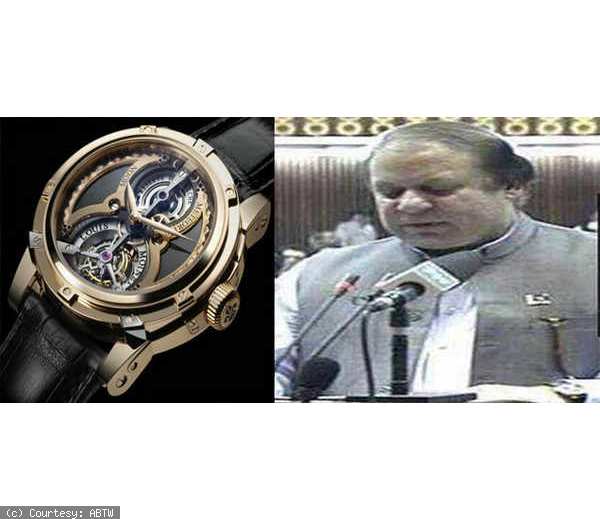Nearly every day at a court in Kolkata, India, Suzette Jordan must relive the brutal gang rape she suffered at the hands of five men in February, 2012, yet she does so with a sense of hope that she is helping to change perceptions in her home country.
Jordan, an Anglo-Indian from the West Bengal capital, has no difficulty recalling the horrific details of the attack. She left a nightclub with a man who had offered to drive her home, but four more men got in the car and locked the doors. They raped and beat her all night. At 3 a.m., they threw her out of the moving car.
Jordan remembers wildly running by the road, fear coursing through her body. She ran home to her two teenage daughters, who saw her bleeding, her body black and blue, her clothes torn. For three days, she did not get off the bed. Then her family insisted she go to the police.
“I hid my face for so long, fearing humiliation. But then I thought, why should I hide? It is not my shame.”
– Suzette Jordan, rape victim from India
In a country where about 24 percent of alleged rapists were convicted last year, going to the police may have seemed futile at best. But perceptions of rape are changing in India, in part because of a spate of high-profile gang rapes that disgusted the public and shifted the stigma of shame from the accuser to the accused.
Jordan decided to go one step further and come out publicly, which became a humiliating ordeal, until last December, when a 23-year-old Delhi paramedic was raped by five men on a bus. The case was so brutal that coverage of it prompted mass protests all over the country. Indian law prohibits revealing the identity of a rape victim, so the media began to call the victim “Nirbhaya,” the fearless one. The woman died from her injuries.
The Indian Parliament then created fast-track courts for rape cases and made fatal rapes punishable by death.
After Nirbhaya’s death, her father, from a village in the northern state of Uttar Pradesh, said he wanted his daughter’s name revealed.
“She didn’t do anything wrong, she died while protecting herself,” he said. “I am proud of her. Revealing her name will give courage to other women who have survived these attacks.”
Nirbhaya is a symbol of resistance today. More survivors are insisting on filing complaints, and taking their story to the press. For a country where rape is often hushed up from fear of humiliation, or lack of support for the victim, this is a watershed moment. For the first time, shame is being shifted away from the woman.
The comments by Nirbhaya’s father resonated with Jordan, who had already felt the urge to go public when she attended a rally in Kolkata.
“I hid my face for so long, fearing humiliation,” Jordan told FoxNews.com. “But then I thought, ‘why should I hide? It is not my shame.’”
It is inside one of the new, fast-track courtrooms where Jordan, 38, relives her terror in the hope that she will win justice, not only for herself, but for other victims. Being Suzette Jordan instead of the ‘Park Street rape victim’ gave her the strength to endure what she calls the horrific journey of justice.
“Taking on indifference and stigma is tough, but when I saw the reactions to Nirbhaya, I felt there is hope for us,” she said.
Jordan remembers being victimized all over again when she went to the police. Officers interrogated her for five hours before they filed her complaint. It took eight days more for a government doctor to do a medical exam, which still haunts Jordan.
“I was stripped naked,” she said. “They probed me, splayed my legs, did that sick two-finger test that all raped women have to endure.”
But a powerful reform movement is under way in India, with the public demanding a new approach to rape cases at all phases. India’s more than 70,000 newspapers have been near universal in condemning systemic inefficiencies in preventing and investigating crimes. On online forums, social media and on the street, people have decried the hesitation of cops to accept complaints, their insensitivity toward rape victims, and the slow grind of a patriarchal bureaucracy that has long let perpetrators go scot free.
In 2012, out of about 100,000 rape cases, only 14 percent saw verdicts. And in only a small number of cases — 3,563 — did defendants get convicted.
Despite parliament’s reforms, which also criminalized acid attacks, stalking and voyeurism and removed the legal protections for accused public servants, many regressive clauses remain. The law remains silent on marital rape. It still gives legal immunity to security forces accused of rape, and does not recognize sexual assault of men and transgendered persons.
Moreover, the main challenge remains: How can sexual violence be prevented? The reasons underlying rape — patriarchy, chronic violence, inequality — seem exhausting and insurmountable.
In July in Bangalore, when a 9-year-old was raped by a neighbor, her mother’s first thought was to think that it must happen to girls everywhere. The mother, who wished to withhold her name, is also abused on a regular basis by her husband. “I get beaten at least once in two days,” she said. “If I go to the police, they’ll say it’s a personal problem.”
None of it, however, is personal. Indian women have always known that the threat of sexual violence exists in every sphere — at work, on the streets, even at home. Child abuse, acid attacks, dowry-related deaths, and caste-violence are chronic. The police reaction is often bizarre.
A family in rural Jindh in the northern state of Haryana recently sought to report the rape and murder of their 20-year-old daughter. On Aug. 24, the parents found her body in a field, tied to fence wire. There were witnesses to the rape, yet the police say it was a suicide, and the local hospital bizarrely says she died of mosquito bites.
The father, Surat Singh, alleges that the police, who belong to the Jat upper caste, are shielding the accused, who are from the same community.
“It is because we are Dalit,” said Singh. Residents from his village are now staging a demonstration near the police station, demanding justice. “I have hope that someone will pay attention,” says Singh. “I shudder to think of the day when even this support will be gone.”
As more sexual assaults are reported, it is clear that none can be seen in isolation. When arrested, the four boys accused of raping a photojournalist in Mumbai admitted to having raped three women from their slum before. They had not expected to get caught this time either.
As prominent columnist Jay Mazoomdar wrote in Firstpost, “Every assault that goes unpunished anywhere is an encouragement to rapists everywhere. It is really all or nothing — no woman will ever really feel safe if another does not.”
As for Jordan, who sits in court, stunned at the irrelevant details she is asked for, only one thought strengthens her.
“I think of the other women my rapists will surely rape if I don’t put them in jail now,” she said. “My fight is their fight, too. Your own experience makes you want to watch out for other women.”







